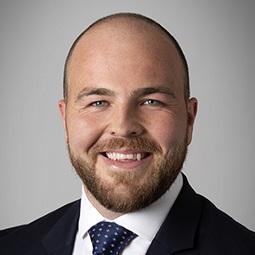A claimant does not need to prove that defendant conspirators, who engaged in an unlawful means conspiracy, knew that their actions were unlawful in order to establish a claim in that tort. The Court of Appeal’s majority decision on this point was handed down in The Racing Partnership Ltd and others v Sports Information Services Ltd [2020] EWCA Civ 1300, a case involving a factually complex breach of confidence and conspiracy concerning the allegedly unlawful collection of betting information from horse racing courses for use by off-course bookmakers.
The economic tort of unlawful means conspiracy occurs where two or more people act together unlawfully, intending to damage a third party (although that intention need not be the predominant purpose), and do, in fact, cause damage to the third party. In this case, the defendant contended that there is an additional mental element of the tort, namely that the defendant must have known that the relevant conduct was actually unlawful.
The Court of Appeal’s decision is welcome: it follows a line of conflicting case law on the requirement for knowledge in this context. In February 2019, in Stobart Group v Tinkler [2019] EWHC 258 (Comm), HHJ Russen QC held that a claimant did not need to prove that the defendant conspirators knew that their conduct was unlawful, saying that to add the knowledge requirement would “detract from the fundamental point that it is in the fact of the conspiracy […] that the unlawfulness resides”. Just three months later, in the first instance judgment of the present case, Zacaroli J disagreed and held that the claimant in an action for unlawful means conspiracy must establish that the defendant had knowledge (actual knowledge or “blind-eye” knowledge) of unlawful conduct. Dismissing the conspiracy claim, Zacaroli J considered it to be “consistent with enforcing basic standards of civilised behaviour that a person is liable for conspiring to injure through such unlawful means only if he or she knows (to the requisite standard) that the claimant’s rights are being infringed”. In their respective decisions, both Judges relied on divergent lines of Court of Appeal authority.
The Racing Partnership Ltd appealed Zacaroli J’s dismissal of the unlawful means conspiracy claim at first instance. By a 2:1 majority (with Lewison LJ dissenting and providing a powerful analysis in doing so), the Court of Appeal allowed the appeal. The Court confirmed that a claimant in an action for unlawful means conspiracy does not need to prove that the conspirators knew that their actions were unlawful.
The judgment as a whole is complex, not least because each Judge provided a separate judgment on a range of issues (including the knowledge requirement for the tort of unlawful means conspiracy) and there are further areas of disagreement between the three Judges. On the knowledge point alone, Arnold LJ, in his judgment, acknowledge it to be a “thorny” issue of law on which several first instance judges had reached divergent decisions before then.
Therefore it is helpful, for lawyers at least, that the Court of Appeal has now provided clear authority on the point. Relying on the central authorities on the constituent elements of the tort – which do not specifically refer to a requirement for knowledge of unlawfulness – Arnold LJ and Phillips LJ agreed that while conspirators should have knowledge of the facts which make the act unlawful, they do not need to have knowledge of the law too.
As this is a fundamental legal issue with which a number of judges have had to grapple in recent years, it is entirely possible – and perhaps even likely given the disagreement between the three Judges in the present case – that the point could, in time, be reviewed by the Supreme Court. The fact alone that, in his dissenting judgment, Lewison LJ listed eleven reasons why the knowledge requirement should be recognised, is evidence enough that there remains ample scope for debate on the point. Nevertheless, until that time, the recent Court of Appeal authority has provided welcome clarity on the issue and, since late 2020, has been relied upon in a number of English judgments to that effect.
Contributor(s)














